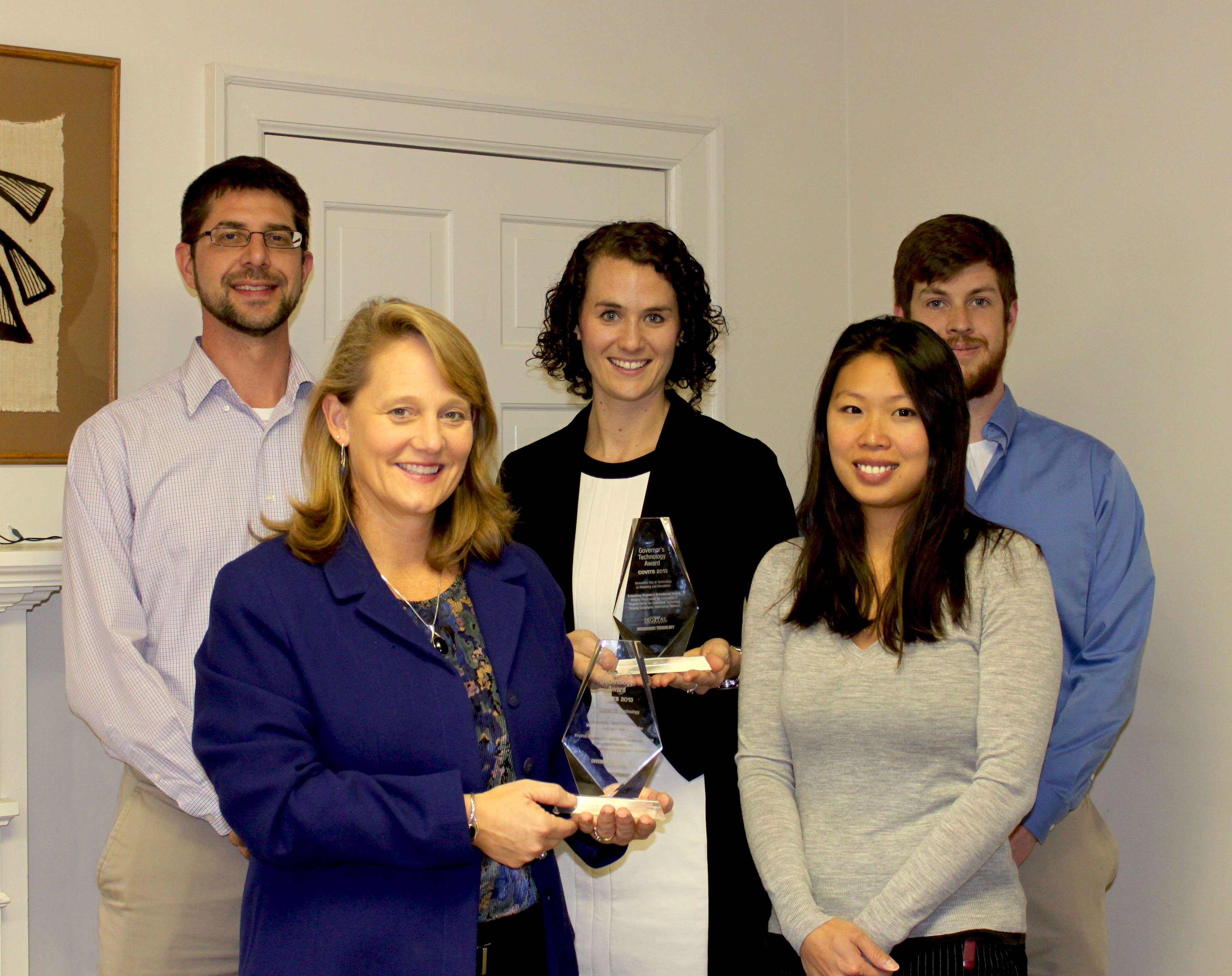Broadband analysis and planning projects garner two Governor's Technology Awards

Governor's Technology Awards were presented at the Commonwealth of Virginia Innovative Technology Symposium to two projects emerging from a multi-year partnership between Virginia's Center for Innovative Technology, the Virginia Geographic Information Network, and two Virginia Tech groups, the Center for Geospatial Information Technology and the Institute for Policy and Governance.
Improving the quality and availability of broadband Internet service in the Commonwealth of Virginia is a major focus of the Governor's Office of Telework Promotion and Broadband Assistance, which seeks to help localities provide better broadband options for their citizens, reach out to underserved groups, and work to eliminate areas where broadband Internet service is not available.
To help meet this need, the office has supported Virginia Tech's two research projects.
The first project, from the Center for Geospatial Information Technology, helps to resolve broadband service gaps, particularly in rural areas. Solutions require the synthesis of a variety of information: current assessments of broadband coverage; an inventory of existing tall structures suitable for installation of new telecommunications equipment; a full understanding of federal and state policies; and simulations that show how new equipment would perform in a given area, or how a new tower would look as an addition to the landscape.
Center Director Peter Sforza led a team of specialists in policy and planning, geospatial technology, computer science, and electrical engineering, who leveraged data from the Commonwealth of Virginia's broadband mapping campaigns into a suite of tools that meet the needs of local governments, Internet developers, and property owners. The Broadband Planning and Analysis Toolbox includes
- The Virginia Broadband Map Book Portal
- The Vertical Assets Inventory Tool
- The Virginia Telecommunications Policy Database
- Speed Spy
- Accelerate Virginia (Governor’s Technology Award recipient, 2011)
These tools enable planners, investors, and decision makers to supplement their discussions on broadband deployment with reliable information they can use to make sighting and installation decisions. The Broadband Planning and Analysis Toolbox received the award for Innovative Use of Technology in Modeling and Simulation.
The second award, for Innovative Use of Technology in Healthcare, was given to the Virginia Tech Institute for Policy and Governance, for a project titled Veteran’s Broadband Access for Improved Healthcare.
Virginia is home to nearly 800,000 veterans who have served in conflicts from World War II to the ongoing Operation Enduring Freedom in Afghanistan. Many of these veterans have complex health conditions that require coordinated, long-term health care support.
The project, led by Senior Program Director Mary Beth Dunkenberger, is finding ways that broadband infrastructure investments within Virginia can be leveraged to provide better broadband-enabled health services; such as telemedicine, electronic health records, and health information exchanges to our veterans. The project will lead to a clearer understanding of the ways that healthcare providers use broadband technologies, how veterans make use of broadband-enabled health services, and how current policies may be promoting or impeding the growth of broadband-enabled healthcare services.
Both projects rely on key partnerships with the Center for Innovative Technology and the Virginia Geographic Information Network. The Veterans Broadband project is also partnering with Broadaxe Technology Partners, and the Virginia Wounded Warrior Program.
A total of 18 Governor’s Technology Awards were presented this year.
Dedicated to its motto, Ut Prosim (That I May Serve), Virginia Tech takes a hands-on, engaging approach to education, preparing scholars to be leaders in their fields and communities. As the commonwealth’s most comprehensive university and its leading research institution, Virginia Tech offers 240 undergraduate and graduate degree programs to more than 31,000 students and manages a research portfolio of $513 million. The university fulfills its land-grant mission of transforming knowledge to practice through technological leadership and by fueling economic growth and job creation locally, regionally, and across Virginia.




